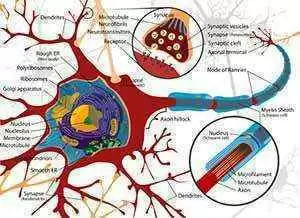Celiac.com 04/28/2014 - Accumulation of dendritic cells (DCs) in duodenal mucosa is associated with celiac disease. Autophagy protein LC3 has recently been implicated in autoantigen formation. However, its role in celiac disease remains unknown.
 A team of researchers recently set out to examine role of autophagic protein LC3 expressed by activated DCs in celiac disease. The research team included P. Rajaguru, K. Vaiphei, B. Saikia, and R. Kochhar, with the Department of Histopathology, Post Graduate Institute of Medical Education and Research in Chandigarh, India.
A team of researchers recently set out to examine role of autophagic protein LC3 expressed by activated DCs in celiac disease. The research team included P. Rajaguru, K. Vaiphei, B. Saikia, and R. Kochhar, with the Department of Histopathology, Post Graduate Institute of Medical Education and Research in Chandigarh, India.
Celiac.com Sponsor (A12):
The team analyzed thirty celiac disease patients at initial presentation and after 6 months of gluten-free diet (GFD). They examined duodenal biopsies for histological changes and CD11c, CD86, and MAP1LC3A expressions by double immunohistochemistry (IHC).
They used Masson's trichrome (MT) staining to determine basement membrane (BM) thickness and Oil Red O (ORO) staining for mucosal lipid deposit. They also conducted polymerase chain reaction (PCR) for the HLA-DQ system. For statistical analysis, they used paired and unpaired t test, chi-square test, Fisher's exact test, and McNemar-Bowker test. A P-value
They found HLA-DQ2 and HLA-DQ8 alleles in all study subjects. They also observed thicker BM in 63% of subjects, while 73% of subjects showed ORO-positive lipid in surface lining epithelium.
Pre-treatment biopsies showed a higher number DCs expressing LC3, which dropped significantly in follow-up biopsies, and also showed significant reduction in BM thickness and ORO.
These results show that histological improvement in duodenal biopsies is connected with less activated DCs expressing autophagic protein, which likely play important role in the development of celiac disease and other autoimmune disorders.
Source:
- Open Original Shared Link





Recommended Comments
There are no comments to display.